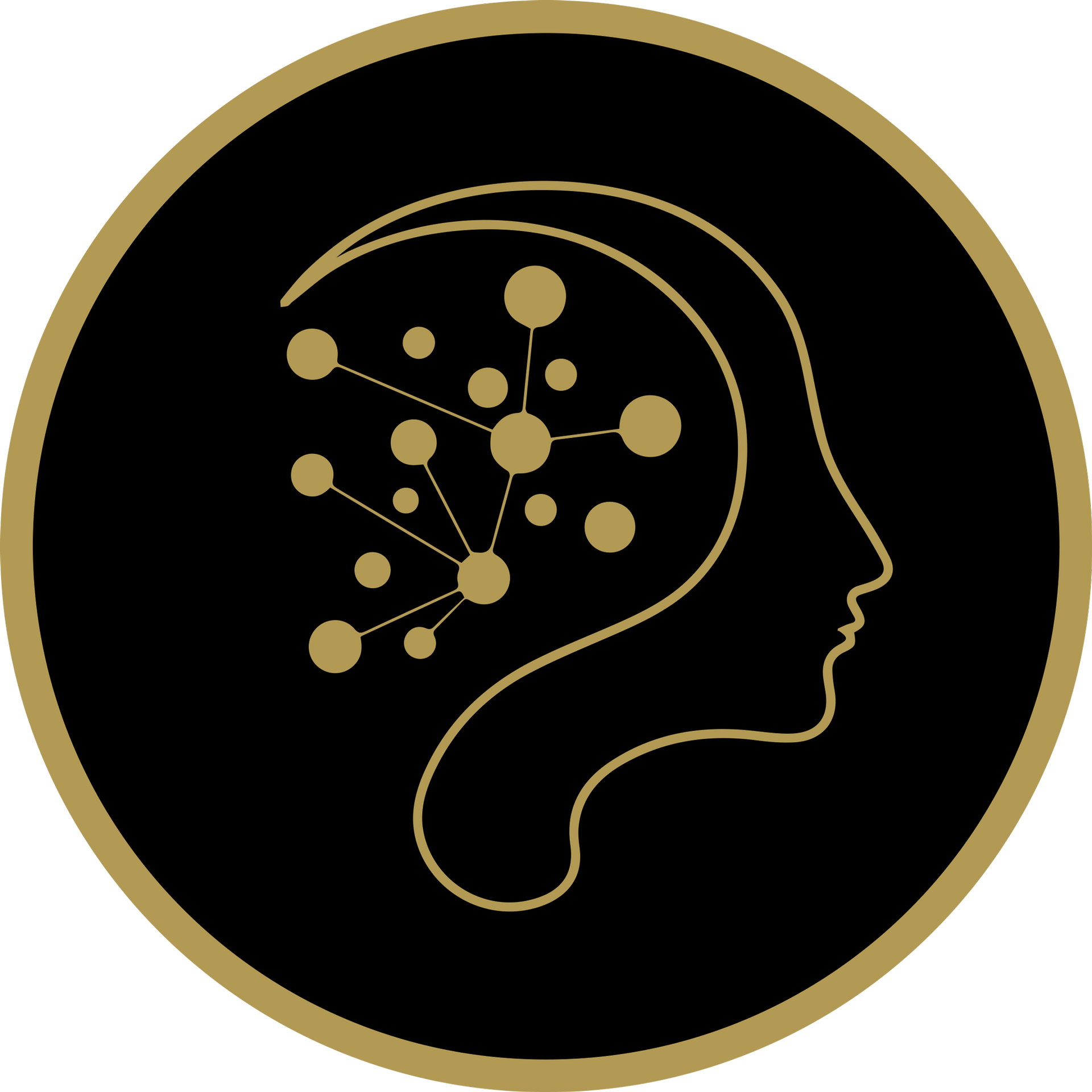When To Seek Mental Health Help: Taking Your Mental Health Seriously
In our fast-paced world, mental health often takes a backseat to more immediate concerns. However, just like physical health, mental well-being is crucial for a fulfilling life.
Recognizing and addressing mental illness early is essential, as many major mental illnesses manifest gradually and can be alleviated with timely professional help.
Ignoring signs of mental distress can lead to severe consequences. This blog post will help you identify key indicators that it’s time to prioritize your mental health. Are you local to Fort Myers Florida? Psychiatrist, Dr. Zaheer Aslam can help!
UNDERSTANDING MENTAL HEALTH
Mental health encompasses emotional, psychological, and social well-being. It affects how we think, feel, and act. Mental health also determines how we handle stress, relate to others, and make choices.
Mental health conditions refer to various psychological disorders and illnesses that affect individuals' thoughts, emotions, and behaviors. Examples include depression, anxiety disorders, schizophrenia, and bipolar disorder. Recognizing these conditions is crucial for seeking appropriate help and treatment.
According to the
World Health Organization (WHO), approximately 1 in 4 people globally will experience a mental health issue at some point in their lives.
RECOGNIZING MENTAL HEALTH DISORDERS
Recognizing mental health disorders can be challenging, but it’s essential to identify the signs and symptoms to seek help early. Mental health disorders can affect anyone, regardless of age, gender, or background. It’s crucial to understand that mental health disorders are not a sign of weakness, and seeking help is a sign of strength.
Some common signs and symptoms of mental health disorders include:
- Changes in mood, such as depression, anxiety, or irritability
- Changes in behavior, such as withdrawal from social activities or substance abuse
- Changes in thought patterns, such as hallucinations or delusions
- Changes in physical health, such as sleep disturbances or appetite changes
If you or someone you know is experiencing several of these symptoms, it may be useful to follow up with a mental health professional. Early recognition and intervention can make a significant difference in managing mental health disorders effectively.
the importance of early intervention
Early intervention in mental health problems can prevent more serious conditions from developing.
According to Mental Health America, individuals who receive early treatment for mental health issues are more likely to recover fully or manage their conditions effectively. Recognizing the signs can be the first step toward seeking the help you need. Specific signs that indicate the need to seek professional mental health help include persistent feelings of sadness, excessive anxiety, and drastic changes in mood or behavior.
feeling overwhelmed constantly
Everyone feels overwhelmed at times, but if this feeling persists, it might indicate a deeper issue. It is important to assess your own mental health to determine if professional help is needed. Constantly feeling overwhelmed can lead to burnout, anxiety, and depression.
According to the American Psychological Association, chronic stress affects nearly half of all adults in the U.S.
Persistent Sadness or Irritability in Mental Health Disorders
Feeling sad or irritable occasionally is normal, but if these feelings persist for weeks or months, it could be a sign of depression. The National Institute of Mental Health states that depression affects around 17.3 million adults in the United States. Persistent sadness and irritability can interfere with daily activities and relationships.
Drastic Changes in Sleep Patterns
Sleep is essential for mental health. Changes in sleep patterns, such as insomnia or oversleeping, can be indicators of mental health issues like anxiety, depression, or bipolar disorder. Studies show that 50-80% of psychiatric patients experience chronic sleep problems.
Social Withdrawal
Withdrawing from social activities and isolating oneself can be a sign of several mental health issues, including depression and anxiety. Social isolation is often linked to higher rates of depression, anxiety, and substance abuse.
Unexplained Physical Symptoms
Mental health issues can manifest physically. Symptoms like headaches, stomachaches, or chronic pain without a clear medical cause can indicate underlying mental health problems. Studies show that up to 80% of people with depression report physical symptoms.
Substance Abuse
Turning to drugs or alcohol to cope with stress, anxiety, or depression is a sign that you should seek help. Substance abuse can exacerbate mental health issues and lead to addiction.
Mental health services play a crucial role in addressing mental, emotional, and behavioral disorders, providing essential support and treatment.
The Impact of Mental Health Disorders on Daily Life
Mental health disorders can significantly impact daily life, affecting relationships, work, and overall well-being. Untreated mental health disorders can lead to:
- Strained relationships with family and friends
- Decreased productivity and performance at work or school
- Increased risk of substance abuse or addiction
- Poor physical health, including chronic diseases and reduced immune function
- Increased risk of suicidal thoughts or behaviors
Seeking professional mental health help can significantly improve daily life, relationships, and overall well-being. Addressing mental health issues early can prevent these negative outcomes and help you lead a more fulfilling life.
How to Seek Mental Health Resources
Recognizing the signs is the first step, but taking action is crucial. Here are some steps you can take:
- Talk to Someone You Trust: Sharing your feelings with a friend or family member can provide relief and support.
- Consult a Healthcare Professional: A doctor or mental health specialist can provide a diagnosis and treatment plan. Effective mental health services administration is essential in preventing mental, emotional, and behavioral disorders.
- Join a Support Group: Connecting with others who are experiencing similar issues can offer comfort and advice.
- Practice Self-care: Activities like exercise, meditation, and hobbies can help improve your mental health.
Finding the Right Mental Health Professional
Finding the right mental health professional can be overwhelming, but it’s essential to find someone who is a good fit for your needs. Here are some tips to find the right mental health professional:
- Ask for referrals from your primary care doctor, friends, or family members
- Check with your insurance provider to see if they have a list of in-network mental health professionals
- Research online and read reviews from other patients
- Make a list of questions to ask during your initial consultation, such as their approach to treatment and their experience with your specific issue
Some common types of mental health professionals include:
- Psychiatrists: medical doctors who specialize in the diagnosis and treatment of mental health disorders
- Psychologists: professionals with a doctoral degree in psychology who specialize in the diagnosis and treatment of mental health disorders
- Licensed Professional Counselors: professionals with a master’s degree in counseling who specialize in the diagnosis and treatment of mental health disorders
Finding the right mental health professional can make a significant difference in your treatment journey, so take the time to find someone who meets your needs and makes you feel comfortable.
What to Expect from Therapy or Treatment
Therapy or treatment can be a life-changing experience, but it’s essential to understand what to expect. Here are some things to expect from therapy or treatment:
- A comprehensive evaluation to understand your mental health needs
- A treatment plan tailored to your specific needs and goals
- Regular sessions with your mental health professional, either individually or in a group setting
- A safe and supportive environment to discuss your thoughts, feelings, and behaviors
- Homework or exercises to practice outside of sessions to reinforce new skills and strategies
Some common types of therapy include:
- Cognitive-behavioral therapy: a type of therapy that focuses on changing negative thought patterns and behaviors
- Psychodynamic therapy: a type of therapy that focuses on exploring the underlying causes of thoughts, feelings, and behaviors
- Family therapy: a type of therapy that involves the entire family in the treatment process
Remember, seeking professional mental health help is a sign of strength, and it’s essential to take care of your mental health. Therapy can provide you with the tools and support you need to improve your mental well-being and lead a more fulfilling life.
Benefits of Professional Help
Seeking professional help for mental health issues offers numerous benefits. Therapists and counselors can provide coping strategies, medication management (if needed), and a safe space to talk about your feelings.
Self-Care Strategies
In addition to seeking professional help, self-care plays a significant role in maintaining mental health. Here are some effective strategies:
- Exercise Regularly: Physical activity releases endorphins, which improve mood and reduce stress.
- Eat a Balanced Diet: Nutrition affects mental health, so a healthy diet can improve mood and energy levels.
- Get Enough Sleep: Quality sleep is crucial for mental well-being. Aim for 7-9 hours of sleep per night.
- Practice Mindfulness: Techniques like meditation and deep breathing can reduce stress and anxiety.
- Stay Connected: Maintaining social relationships provides emotional support and reduces feelings of isolation.
Addressing Stigma
One of the barriers to seeking help is the stigma surrounding mental health. Many people feel ashamed or afraid to admit they need help. It's important to understand that mental health issues are common and nothing to be ashamed of. Talking openly about mental health can reduce stigma and encourage others to seek help.
THE RULE OF COMMUNITY SUPPORT
Communities play a vital role in supporting individuals facing mental health issues. Local organizations, such as mental health clinics and non-profits, as well as support groups that meet in-person or virtually, offer important resources and a sense of belonging to those in need.
These groups can provide everything from counseling services to workshops that teach coping strategies. Additionally, online communities can connect individuals who may feel isolated, allowing them to share experiences and support one another.
The impact of community support is profound, significantly improving mental health outcomes and fostering a more inclusive environment where individuals feel understood and valued. By coming together, we can create a stronger support system that positively influences the mental well-being of everyone involved.
Conclusion
Recognizing the signs of mental health issues and seeking help early can make a significant difference in your overall well-being.
If you're experiencing persistent sadness, overwhelming stress, changes in sleep patterns, social withdrawal, unexplained physical symptoms, or substance abuse, it's crucial to take action. Talk to someone you trust, consult a healthcare professional and practice self-care. Taking care of your mental health is just as important as taking care of your physical health. Don't wait until things get worse – prioritize your mental well-being today.
Take the Next Step with SW Florida TMS & Ketamine
At SW Florida TMS & Ketamine, we are here to help you fight the battle against depression and other mental health issues such as anxiety, OCD, PTSD, and more. We address specific mental health issues, including post traumatic stress disorder, as defined by the Diagnostic and Statistical Manual of Mental Disorders (DSM). You can reach us at (239) 935-5599 or fill out our contact form to learn more about our treatment options.
Cited Sources:
Krystal, Andrew D. “Psychiatric disorders and sleep.” Neurologic clinics vol. 30,4 (2012): 1389-413. doi:10.1016/j.ncl.2012.08.018
Trivedi, Madhukar H. “The link between depression and physical symptoms.” Primary care companion to the Journal of clinical psychiatry vol. 6,Suppl 1 (2004): 12-6.
MENTAL HEALTH SERVICES
BOOK A CONSULTATION
Knowing that you are not alone is of utmost importance. Seek assistance for depression today!
OUR SERVICE SUPPORTS MENTAL WELLNESS
- Depression
- Lack of Joy
- Sadness and Despair
- Low Mood
- Lethargy
- Insomnia
- Oversleeping
- Social Isolation
- Self-Harm
- Substance Abuse
- Suicidal Ideation
- Alcoholism









